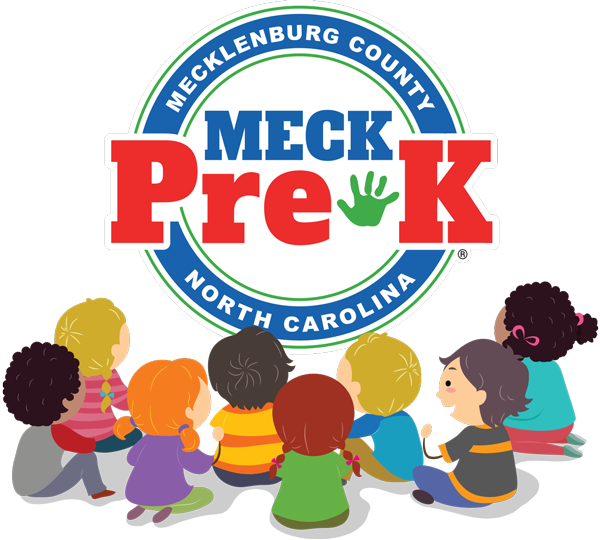Language is the foundation of learning. When young children build strong language and literacy skills early, they are better prepared for school and for life. The good news? You don’t need flashcards or worksheets—simple, everyday interactions at home can make a huge difference.
Your local library is a great resource for early literacy activities such as storytimes and reading. In Mecklenburg County, our partners Charlotte Mecklenburg Library offer these Early Literacy tips for parents and caregivers at cmlibrary.org/services/childrens-services:
- Talking with children is one of the best ways to help them learn new words and information. Describe what you see on a walk, talk about your day, or ask your child questions.
- Singing is a natural way for children to learn about language. Songs help break words into smaller sounds, which is an important pre-reading skill.
- Reading together is the single most important way to help children get ready to read. Make it part of your daily routine, whether at bedtime or during quiet time.
- Writing and reading go together. Scribbling and drawing help children understand that written words stand for spoken language.
- Playing helps children put thoughts into words and think symbolically, so they understand that spoken and written words can stand for real objects and experiences.
Make Early Literacy Fun and Accessible
In addition to these daily practices, Charlotte Mecklenburg Library provides family-friendly resources to support early literacy in joyful, interactive ways:
- Active Reading Workshops: Parents learn strategies for making storytime more engaging, like asking questions, pointing to words, and encouraging children to join in.
- StoryWalks®: Families can enjoy stories page by page along outdoor walking paths—combining reading with fresh air and movement. (StoryWalks can also be found in communities across the U.S.)
- Preschool Storytimes and Children’s Programs: At most library branches, children’s librarians host storytimes featuring books, stories, rhymes, and songs—designed to encourage language development and pre-reading skills. Parents and caregivers are encouraged to participate, making it a shared learning experience.
Keep It Consistent
The key is consistency. Just a few minutes each day spent talking, singing, reading, writing, and playing can spark a lifelong love of language and learning. By weaving these activities into everyday routines, you’re giving your child the tools to thrive in pre-K, kindergarten, and beyond.
Watch the hands-on learning taking place in MECK Pre-K classrooms regarding Language and Literacy in this short video:
About MECK Pre-K
MECK Pre-K is a high-quality pre-K program open to all four-year-old children in Mecklenburg County at no cost to families. Classrooms are located in licensed childcare centers and taught by licensed teachers and highly qualified assistant teachers. You can apply online at MeckPreK.org.
Do you have a child who is not old enough for pre-K this year? Sign up for our email list and be notified when they’re eligible for MECK Pre-K. Simply go to our future students page and select your child’s age group.

